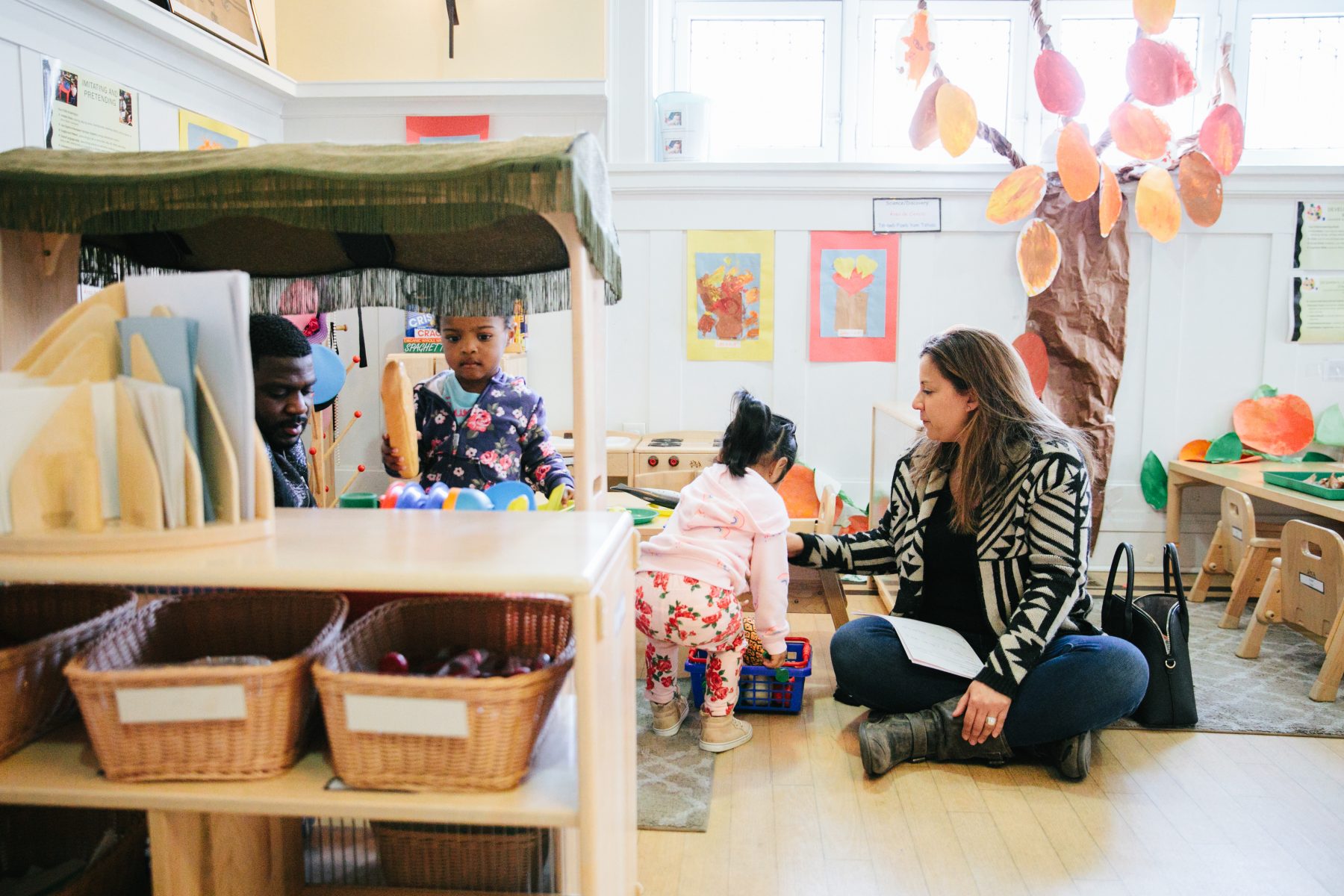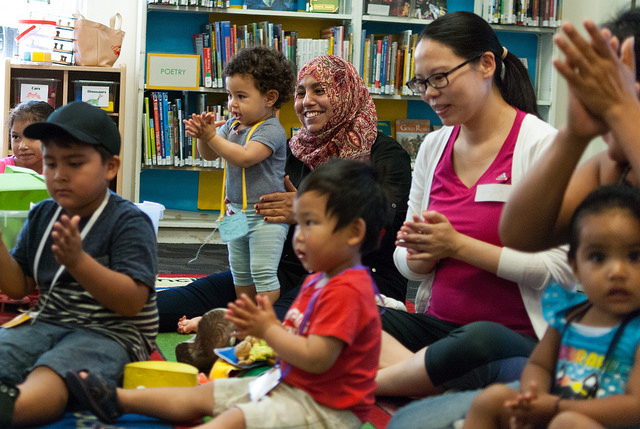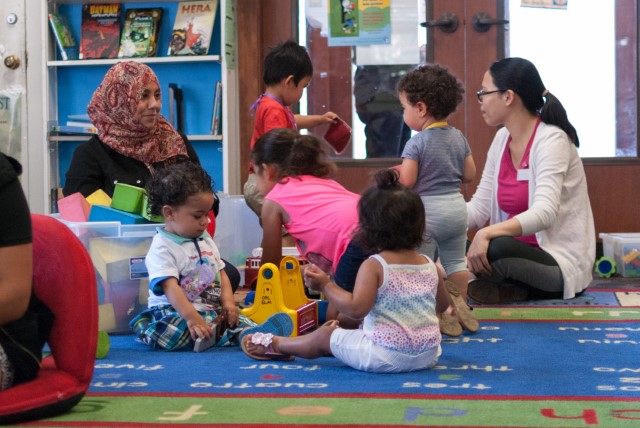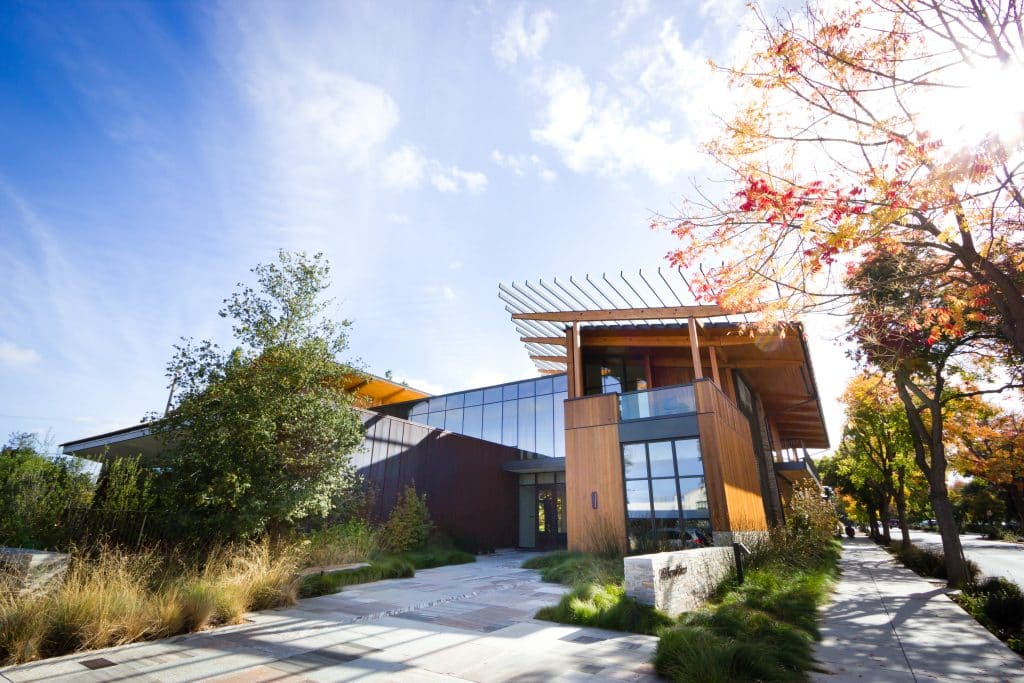Behind the scenes of everyday life and activity, there is a network of family members, friends, and neighbors (FFN) who are caring for our nation’s youngest children. Often unnoticed, these individuals provide critical care to the vast majority of children in home-based, informal settings and are an essential part of the fabric of today’s childcare system. They play a vital role in nurturing well-being during the first five years of life, a critical window in a child’s development.
FFN care is the most common type of nonparental childcare in the United States. Every day, more than three million grandmas or abuelas, aunties, nannies, friends, and neighbors provide warm, loving care to over six million young children from birth through age five while their parents are at work or school.
Parents choose FFN caregivers for many reasons, such as having someone that they trust care for their child, needing care that’s affordable and flexible in accommodating their varied work schedules, or wanting their child to be taken care of by someone that reflects their family’s culture and language. While families of all income levels choose FFN care, families earning low-income, families of color, and parents who work nontraditional hours or unpredictable shifts are more likely to rely on FFN care.
Because FFN care is often overlooked in childcare funding and policy discussions, there are limited opportunities for FFN caregivers to expand their knowledge and skills in early care and education. If we truly honor the choice that parents make in choosing FFN care, we must ensure that access to opportunities and strong networks exist in communities to support the quality of care FFN caregivers provide.
Strengthening informal care and scaling what works
Since 2014, the Packard Foundation has been committed to investing in informal care by partnering with organizations and networks in California and beyond that focus on supporting quality adult-child interactions for FFN caregivers and children. The core hypothesis underlying our ten-year strategy is that meeting FFN caregivers’ desire for information and resources and connecting them to other caregivers can support them in creating stimulating and rich learning experiences for children in their care.
Over the past five years, we have sought to better understand who FFN caregivers are and their motivations for providing care. We learned from a variety of grantee partners about promising community-driven approaches to reach FFN caregivers that provide them with tools and resources they need to create nurturing and engaging connections with children.
Our latest evaluation report, Scaling Programs for Family, Friend and Neighbor Caregivers, summarizes what we have learned from the past five years of our grantmaking strategy, including these lessons:
- Strengthening the knowledge and skills of FFN caregivers is essential for supporting children’s early learning and education. When we support the quality of care that FFN caregivers provide, we are helping to strengthen the entire early learning system, ensuring that all children in informal care settings have access to the same learning opportunities as their peers in formal care settings.
- Several conditions need to be considered in order to scale approaches that support FFN caregivers. Strong community connection and trust; staff capacity and support; a codified model that can be adapted to local context; access to space, infrastructure, and resources; start-up and sustained funding; and support from leaders and institutions are conditions that can help to facilitate growth and spread of practices that support FFN caregivers.
- Community-driven approaches to scaling are more durable. For scaling to be impactful and long-lasting, we must look to communities to define what scale means for them, taking into account their local context. Depending on the community’s goals, scale can take on various meanings, such as greater reach, deeper engagement, diversity of offerings, transfer of capacity, or extending positive outcomes.
What’s next for our strategy
With lessons from this evaluation in mind, we are looking to our grantee partners to lead the way as together we explore how best to build upon some of the promising approaches and practices in FFN care we’re seeing. These approaches include working with public libraries and local child care resource and referral agencies to reach and engage more FFN caregivers and children through playgroups, and investing in the capacity of community-based promotores or community health workers to provide training and peer support for FFN caregivers.
We are also turning to our FFN Learning Community to help inform our strategy. Although this California-based FFN Learning Community is in its infancy, it is becoming a robust network for fostering shared learnings and resources among organizations committed to ensuring the strength of FFN caregiving.
At the national level, we are proud to be part of Home Grown, a national funder collaborative committed to improving the quality of and access to home-based child care, including FFN care and family child care.
And as we all grapple with COVID-19, its impact on FFN caregivers and the organizations that serve them cannot be understated. Many childcare centers struggle to remain open and working parents are increasingly relying on FFN caregivers for care. At the same time, despite sheltering-in-place and social distancing requirements, organizations remain committed to serving FFN caregivers. Many have had to shift their strategies to embrace virtual tools, which might influence how or what they choose to scale in the future.
While we don’t know what the future will bring, one thing we know for sure is that grandparents, family members, friends, and neighbors who are taking on the essential role of nurturing and caring for young children deserve more recognition and support than they are currently receiving.
We remain inspired by our grantee partners and other organizations who continue to lift up the important role of FFN caregivers. As we transition into the remaining four years of our investment strategy at the Packard Foundation, we look forward to continuing to learn from our grantees and from these early efforts to build momentum and support for FFN caregivers.










